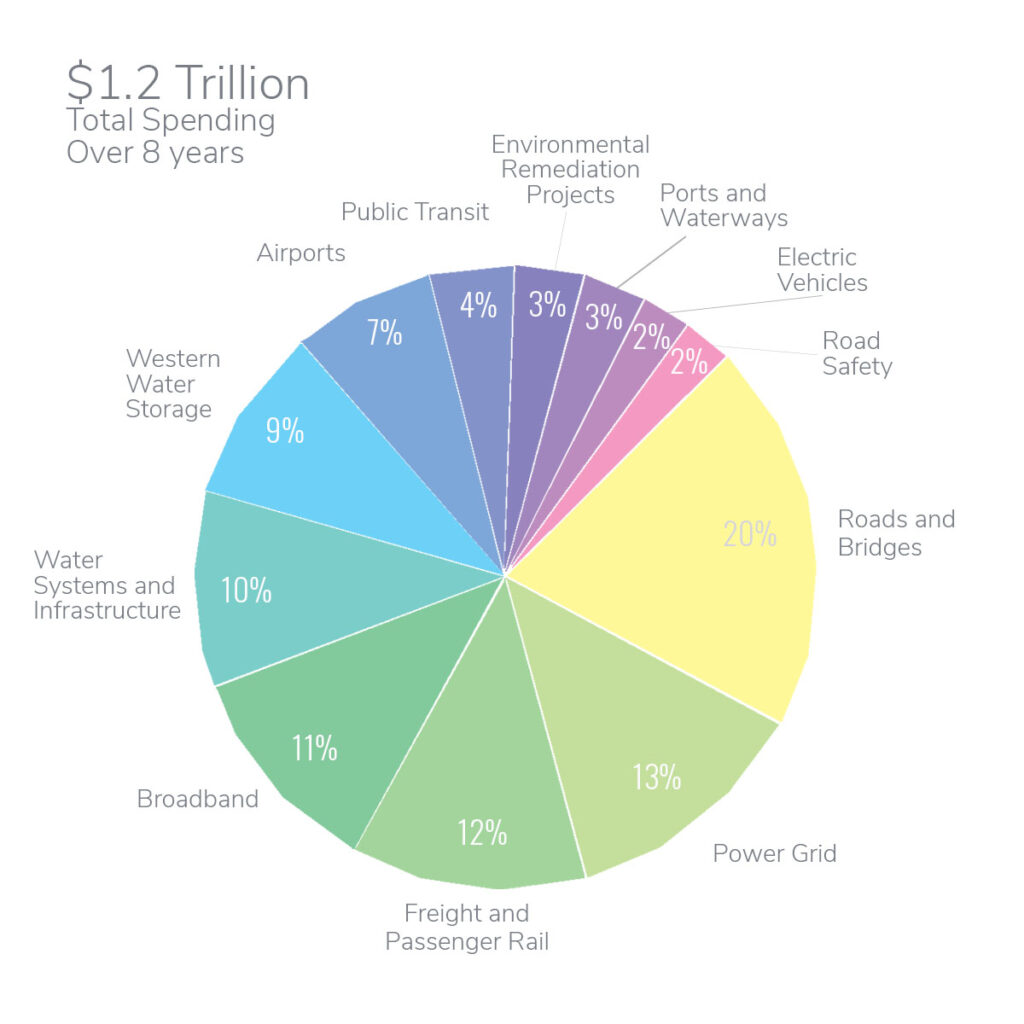Last month the US Senate passed H.R. 3684 – Infrastructure Investment and Jobs Act, also known as the “INVEST in America Act.” As architects that advocate for progressive planning that supports environmental and equitable communities, we see this bill – which will hopefully soon become law – as a major step forward. It is progress not only in the repair of physical roads and bridges, but also represents the potential for regeneration of communities and natural resources that have been adversely affected by short-sighted decisions of the past. Some provisions that we’re most excited about are:
A NEW VISION
September 03, 2021

INVESTING IN AND RECONNECTING COMMUNITIES
Even in recent history, road construction in the US has caused many American cities to be physically divided by large highways, disproportionately affecting lower income communities and communities of color. Investing in infrastructure and transportation generally can have a meaningful impact on equity in the US, and this act includes specific provisions to fund the “planning, design, demolition and reconstruction of street grids, parks or other infrastructure.” The INVEST in America Act could represent a step in the right direction toward creating socially just, environmentally conscious, and equality driven decisions regarding these communities and their needs.
CLIMATE CHANGE ACTION
This bill is an investment into the fight against climate change, including $28 billion for power grid infrastructure, resiliency, and reliability (in part to help expand the reach of clean energy) and $46 billion to help mitigate damage from natural disasters. With transportation being the number one contributor to greenhouse gas emissions in the US, the INVEST in America Act takes deliberate steps to enhance the clean transportation sector, in order to reform and invest in a reduction of carbon pollution. The bill creates initiatives to reduce emissions, provide clean transportation options such as enhanced public transit, EV infrastructure to support electric cars, and the use of electric school buses nationwide.

ENVIRONMENTAL REMEDIATION
This bill would also commit $21 billion to environmental remediation, particularly to clean up Superfund and brownfield sites, abandoned mines, and neglected gas wells. 26% of Black Americans and 29% of Hispanic Americans live within 3 miles of these Superfund sites. This proximity to sites such as these can lead to heightened levels of lead in children’s blood, as well as asthma and other breathing disorders. The bill makes the largest investment in American history in addressing the legacy pollution that continues to harm public health. It may also create thousands of livable wage jobs for those within these communities.
